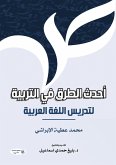In the era of globalization and cognitive diversity, education faces new challenges in creating and maintaining identity. This book provides a comprehensive view of issues related to education and cultural hegemony and examines how to reconcile the preservation of cultural identity with the opportunities of global education. It is a call to rethink the concept of identity in a rapidly changing world, and to explore the ways in which education can be a bridge between cultures rather A wall separates them. The identity of any nation expresses its distinguishing features from other nations, embodies its cultural personality, and this identity consists of three main elements: religion, the language in which it is expressed, and the long cultural heritage. Language comes after religion as a distinctive feature of a people's culture and distinguishes it from others. History and cultural elements play a role in creating identity. Identity, where the components of cultural identity emerge from sharing religion, language, common history, customs and traditions. The basic education stage aims to achieve national cohesion through cultural and intellectual homogeneity and enhance the sense of national identity, through cultural communication, confronting the negative challenges of globalization, and bringing students' behavior patterns closer in line with the requirements of society, as it enhances loyalty and belonging and contributes to shaping the national character of new generations.
Dieser Download kann aus rechtlichen Gründen nur mit Rechnungsadresse in A, B, BG, CY, CZ, D, DK, EW, E, FIN, F, GR, H, IRL, I, LT, L, LR, M, NL, PL, P, R, S, SLO, SK ausgeliefert werden.









